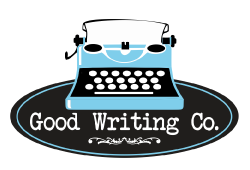Spotlight on Editors: 5 Things You Need to Know
by Bethany Good | Feb 28, 2024
Posted in Book Editing, Copyediting, Tips and Tricks

Image by Thought Catalog on Unpslash
If I had a dollar for every time someone wanted me to “take a look” at their manuscript, I wouldn’t be writing this post. I’d be on a beach in Puerto Rico, finally finishing my own manuscript. These writers often want me to provide feedback and suggestions for FREE. Some are shocked when I tell them I’m a professional who charges for my services. Some say they’ll just use Grammarly or Autocrit for editing. Or even worse, that they don’t need an editor!
I hate to break it to you, but you aren’t that great of a writer.
I know it sounds harsh, but it’s the truth. Even professional writers who have sold millions of books will tell you that editing is essential to the writing process. Editors help shape your story, and give you advice on how to become a better writer.
“When you reach the editing stage, it is often the case that you can get too involved with the story to detect errors. You can see words in your head that aren’t actually there on the page, sentences blur together, and errors escape you, and you follow plot threads and see only the images in your skull.” -Neal Asher.
Editing apps can check grammar, spelling, and even style checkers, but all kinds of mistakes are much harder to find than spelling errors and typos.
Why? Because grammatical errors depend on context.
Here’s an example:
If I write, “It was the best of time, it was the worst of time,” you know right away that “time” is missing an “s.”
A spell checker wouldn’t flag it because “time” is in the dictionary. The word exists. It’s just being misused.
Editors provide a valuable service to any author wanting to publish their book.
That being said, here are 5 things that Grammarly and Autocrit can’t do that a human editor can:
Help authors determine their audience.
Who are you writing your book for? This is one of the most important questions an author can ask themselves. Figuring out your readership helps you determine your writing style, marketing, and much more. Maybe you want a spot on the New York Times or Amazon bestsellers list (this is much harder than you’d think, so manage your expectations). Or perhaps you’d be satisfied to hand your life story down to your children and grandchildren. Either way, an editor can help you turn out some high-quality writing. And trust me, no matter how popular you are on Instagram, your audience wants a quality, error-free read.
Offer suggestions to improve the plot, setting, characters, tone, and flow.
Have you ever read a book without a satisfying ending? Perhaps you’ve sat down with a horror novel and found that all of the female characters had no personalities and appeared to be inspired by the author’s latest wet dream. A good editor will help you flesh out your plot and make your characters more realistic. After all, you want your readers to fall in love with your story as much as you have, right?
Give authors the tools to strengthen their voice and sharpen their writing skills.
Many people think they can send their manuscript to their sister, cousin, or mom for feedback. Let me tell you why this is a bad idea. Your sister has a vested interest in not telling you the truth. It’s not that she wants to lie to you; it’s just that she knows she’ll have to spend every holiday with you for the foreseeable future, and she doesn’t want you holding a grudge over that time she told you that your book wasn’t that interesting. You can’t really blame her for fudging her feedback. That is why a professional editor with a writing degree and experience in the publishing industry is a better way to go. They can offer you their unbiased opinion on how to improve your writing and turn out a better book than you ever thought possible.
Check sources for accuracy, create citations, and build a bibliography.
This is pretty self-explanatory. If you want your book to be taken seriously by readers and others in your industry, then it must be factual. You must back up your claims with information from reliable sources. A book editor can help legitimize your work by fact-checking your sources and organizing your citations.
Help you create a book that will engage your readers.
Think about it this way: have you ever read a self-published book on Amazon and immediately put it down because it was filled with typos, grammatical and formatting errors, or “stream of consciousness” writing? If you’ve stopped reading a book because it is nonsensical, unclear, or difficult to read, then your audience will, too.
If you have questions about your manuscript, we can help. Good Writing Co. offers a free 15-minute consultation to prospective authors.
You can learn more about our editing services here.

Hello!
I’m passionate about writing. I believe all businesses have a passion for what they do. My job is to share your passion with the world through my writing.
